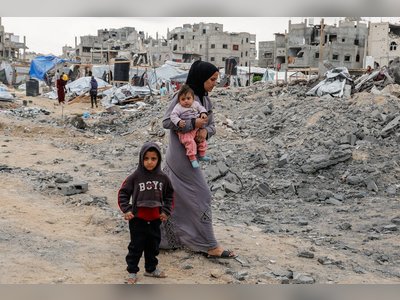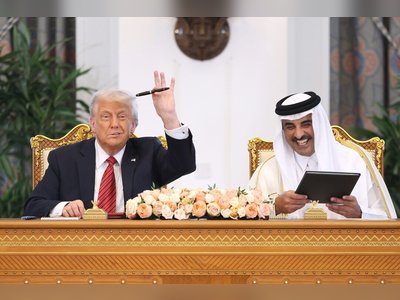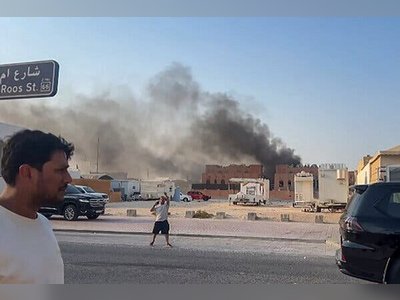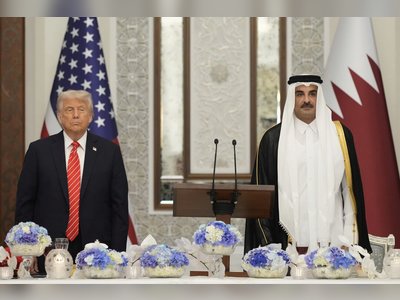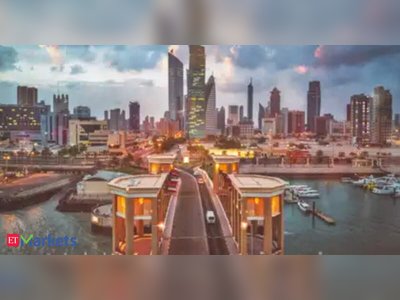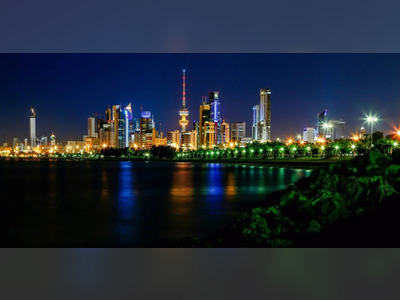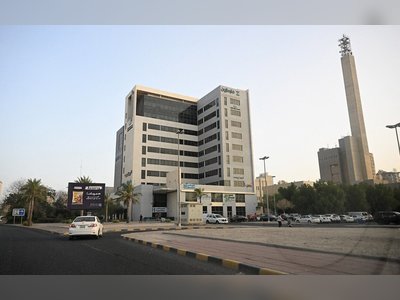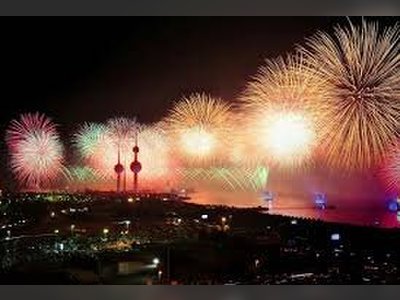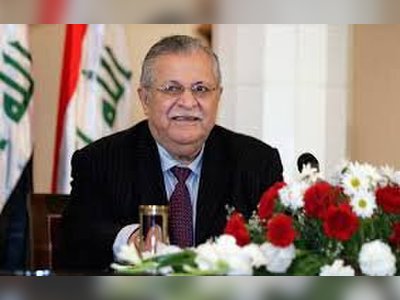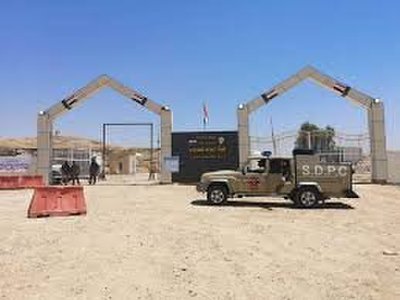
Lebanon's New Government Faces Economic and Political Challenges
Following a two-year presidential vacancy, the election of Joseph Aoun and the formation of a new government under Nawaf Salam mark a pivotal point amidst ongoing instability.
After a presidential vacancy that lasted over two years, Joseph Aoun, the commander of the Lebanese Army, was elected as President on January 9, 2025. This development initiates a new chapter potentially extending over six years and was followed by the appointment of international judge Nawaf Salam as Prime Minister, whose government has received parliamentary approval against the backdrop of unprecedented internal and regional challenges.
Lebanon experienced its fourth presidential vacuum in its history during the past two years, following the expiry of former President Michel Aoun's term in October 2022, leading to deep economic crises and significant financial collapse.
The ongoing conflict in Gaza, coupled with Hezbollah's involvement in the "support war" for over a year until a ceasefire agreement in November 2024, exacerbated the political and economic instability.
This situation has rendered potential solutions elusive in a country where political factions engage in sectarian power struggles, influenced by external forces impacting national decision-making.
The election of Aoun and the subsequent formation of Salam's government represents a shift in the Lebanese political landscape.
Aoun's selection followed twelve parliamentary sessions and was significantly aided by the diplomatic efforts of the "Five-Power Committee," comprising ambassadors from the United States, France, Egypt, Saudi Arabia, and Qatar.
Salam's government marks a deviation from the traditional Lebanese cabinet formation, breaking the norm of proportional representation linked to parliamentary seats, while still maintaining Shia representation from the Amal Movement and Hezbollah.
The government coalition is united in its opposition to Iranian influence within Lebanon and advocates for the monopolization of arms by the state, fostering a considerable degree of cohesion despite the inexperience and academic backgrounds of its members.
Under Lebanese constitutional law, a quorum for cabinet meetings requires two-thirds attendance, which limits the ability of the Amal Movement and Hezbollah to obstruct government sessions, suggesting the onset of a new era in Lebanon's political dynamics.
The new government faces pressing Arab and international demands for assistance in tackling economic challenges.
Key among these requests is the implementation of the ceasefire agreement between Lebanon and Israel as per UN Security Council Resolution 1701, the disarmament of armed groups, and the dismantling of unauthorized installations throughout Lebanon.
Additionally, there are calls for the reform of public agencies following constitutional guidelines, as well as the requisite appointments in security, judicial, and monetary positions.
The new administration must also contend with a range of economic hardships including the reconstruction of infrastructure damaged during the recent Israeli conflict, the rehabilitation of affected agricultural areas, re-engagement with the International Monetary Fund (IMF), and the resolution of electricity supply issues.
The World Bank estimates that reconstruction and recovery will require approximately $11 billion, with public sector investments ranging between $3 to $5 billion aimed at infrastructure improvements, and private sector contributions estimated at $6 to $8 billion to bolster housing, trade, industry, and tourism sectors.
While Lebanon incurred around $14 billion in total damages from the recent war, the government faces significant challenges in securing the necessary budget without engaging with international support, particularly from Gulf nations.
In May 2024, IMF experts visiting Lebanon warned that failure to implement essential economic reforms could have dire consequences for the Lebanese economy and its populace.
The significance of reaching an agreement with the IMF also includes obtaining a favorable rating from global credit agencies and financial markets.
The new government is tasked with restructuring the banking sector, resolving deposit issues, enhancing public finances by adhering to constitutional deadlines for budget approvals, eliminating budget deficits, and increasing transparency and accountability in public institutions.
Long-term strategies include reviving economic activity, generating job opportunities, stabilizing the national currency and the Lebanese lira, exploring oil and gas reserves, and stimulating vital sectors to boost GDP and increase fiscal revenues.
In 2024, growth shrank by 7.1%, a notable downturn compared to a projected 0.9% growth without conflict, contributing to a cumulative drop in GDP of approximately 40% since 2019, thereby intensifying the persistent economic recession.
The Lebanese pound has lost about 98% of its purchasing power over the past two years, resulting in price surges, inflationary pressures, wage erosion, and a shrinking middle class, necessitating a protracted recovery process.
Revitalizing key economic sectors poses significant challenges with crucial implications for state revenue.
The tourism sector, which has suffered due to conflicts, contributed roughly 27% to GDP, generating about $5.41 billion in 2023. Lebanon continues to aspire to harness its natural resources and develop capabilities for oil and gas exploration, even as drilling activities have commenced in only one out of ten designated exploration blocks along the Lebanese coastline.
The manner in which Aoun ascended to the presidency and the unique composition of the new government hint at an end to an era in Lebanese politics, signaling a decrease in the influence of Hezbollah and its allies in the state for the first time in two decades, particularly following the regime change in neighboring Syria.
The current government structure aims to create conditions for a transitional phase in Lebanon’s internal politics, setting the stage for discussions on Hezbollah's weapons and diminishing Iranian influence, and subsequently positioning Lebanon neutrally in regional conflicts while seeking to normalize relations with Arab nations.
Lebanon experienced its fourth presidential vacuum in its history during the past two years, following the expiry of former President Michel Aoun's term in October 2022, leading to deep economic crises and significant financial collapse.
The ongoing conflict in Gaza, coupled with Hezbollah's involvement in the "support war" for over a year until a ceasefire agreement in November 2024, exacerbated the political and economic instability.
This situation has rendered potential solutions elusive in a country where political factions engage in sectarian power struggles, influenced by external forces impacting national decision-making.
The election of Aoun and the subsequent formation of Salam's government represents a shift in the Lebanese political landscape.
Aoun's selection followed twelve parliamentary sessions and was significantly aided by the diplomatic efforts of the "Five-Power Committee," comprising ambassadors from the United States, France, Egypt, Saudi Arabia, and Qatar.
Salam's government marks a deviation from the traditional Lebanese cabinet formation, breaking the norm of proportional representation linked to parliamentary seats, while still maintaining Shia representation from the Amal Movement and Hezbollah.
The government coalition is united in its opposition to Iranian influence within Lebanon and advocates for the monopolization of arms by the state, fostering a considerable degree of cohesion despite the inexperience and academic backgrounds of its members.
Under Lebanese constitutional law, a quorum for cabinet meetings requires two-thirds attendance, which limits the ability of the Amal Movement and Hezbollah to obstruct government sessions, suggesting the onset of a new era in Lebanon's political dynamics.
The new government faces pressing Arab and international demands for assistance in tackling economic challenges.
Key among these requests is the implementation of the ceasefire agreement between Lebanon and Israel as per UN Security Council Resolution 1701, the disarmament of armed groups, and the dismantling of unauthorized installations throughout Lebanon.
Additionally, there are calls for the reform of public agencies following constitutional guidelines, as well as the requisite appointments in security, judicial, and monetary positions.
The new administration must also contend with a range of economic hardships including the reconstruction of infrastructure damaged during the recent Israeli conflict, the rehabilitation of affected agricultural areas, re-engagement with the International Monetary Fund (IMF), and the resolution of electricity supply issues.
The World Bank estimates that reconstruction and recovery will require approximately $11 billion, with public sector investments ranging between $3 to $5 billion aimed at infrastructure improvements, and private sector contributions estimated at $6 to $8 billion to bolster housing, trade, industry, and tourism sectors.
While Lebanon incurred around $14 billion in total damages from the recent war, the government faces significant challenges in securing the necessary budget without engaging with international support, particularly from Gulf nations.
In May 2024, IMF experts visiting Lebanon warned that failure to implement essential economic reforms could have dire consequences for the Lebanese economy and its populace.
The significance of reaching an agreement with the IMF also includes obtaining a favorable rating from global credit agencies and financial markets.
The new government is tasked with restructuring the banking sector, resolving deposit issues, enhancing public finances by adhering to constitutional deadlines for budget approvals, eliminating budget deficits, and increasing transparency and accountability in public institutions.
Long-term strategies include reviving economic activity, generating job opportunities, stabilizing the national currency and the Lebanese lira, exploring oil and gas reserves, and stimulating vital sectors to boost GDP and increase fiscal revenues.
In 2024, growth shrank by 7.1%, a notable downturn compared to a projected 0.9% growth without conflict, contributing to a cumulative drop in GDP of approximately 40% since 2019, thereby intensifying the persistent economic recession.
The Lebanese pound has lost about 98% of its purchasing power over the past two years, resulting in price surges, inflationary pressures, wage erosion, and a shrinking middle class, necessitating a protracted recovery process.
Revitalizing key economic sectors poses significant challenges with crucial implications for state revenue.
The tourism sector, which has suffered due to conflicts, contributed roughly 27% to GDP, generating about $5.41 billion in 2023. Lebanon continues to aspire to harness its natural resources and develop capabilities for oil and gas exploration, even as drilling activities have commenced in only one out of ten designated exploration blocks along the Lebanese coastline.
The manner in which Aoun ascended to the presidency and the unique composition of the new government hint at an end to an era in Lebanese politics, signaling a decrease in the influence of Hezbollah and its allies in the state for the first time in two decades, particularly following the regime change in neighboring Syria.
The current government structure aims to create conditions for a transitional phase in Lebanon’s internal politics, setting the stage for discussions on Hezbollah's weapons and diminishing Iranian influence, and subsequently positioning Lebanon neutrally in regional conflicts while seeking to normalize relations with Arab nations.
